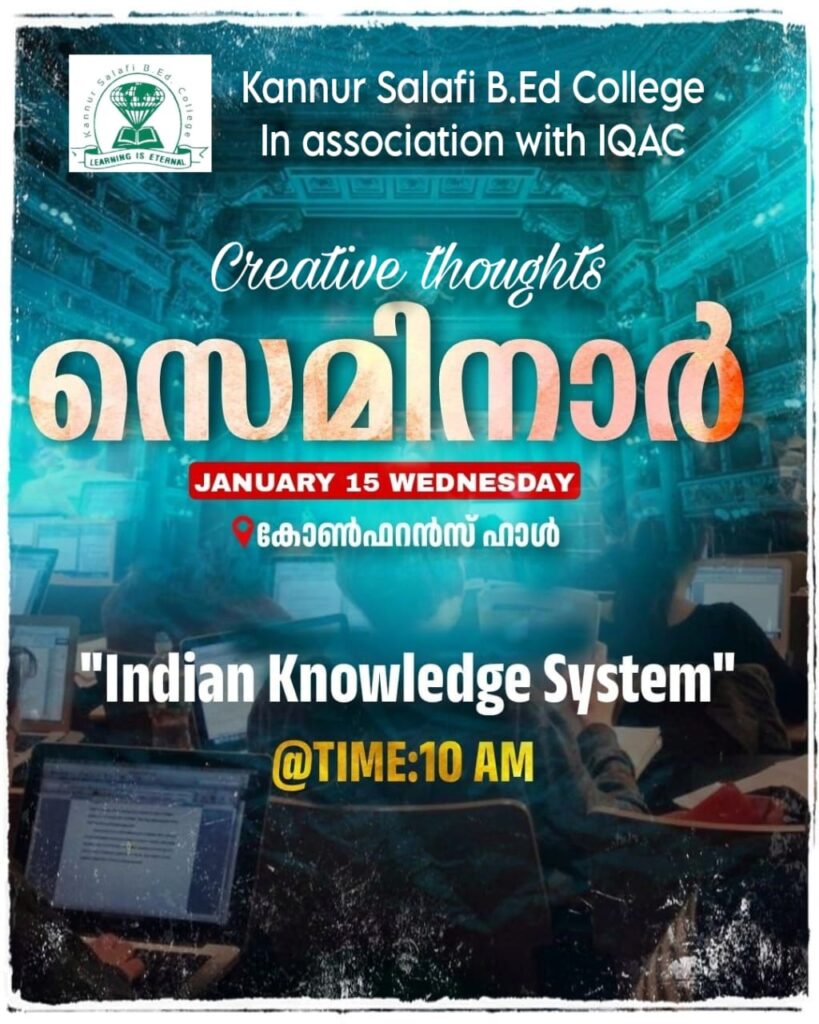
On 15th January 2025, Kannur Salafi B.Ed. College organized a seminar on the Indian Knowledge System at the Conference Hall. The seminar focused on the exploration and appreciation of literature and science within the Indian Knowledge System, emphasizing their integral role in shaping the intellectual heritage of India. The event was attended by faculty members, students, and scholars, and was part of an effort to delve into the rich and diverse traditions of knowledge that have emerged from India’s cultural history. The students from the 2024-2026 batch were actively involved in presenting the seminar, showcasing their academic dedication and understanding of the subject matter.
The seminar consisted of various presentations and discussions that highlighted the unique contributions of India in the fields of literature and science. Topics such as ancient texts, scientific advancements, the role of language in knowledge dissemination, and the philosophical underpinnings of Indian thought were discussed in depth.
Literature in Indian Knowledge System: The students presented detailed insights into the vast body of literature that has shaped the Indian intellectual tradition, including the Vedas, Upanishads, classical Sanskrit literature, and regional languages’ contributions. They discussed how ancient texts have preserved the cultural and philosophical values of Indian society over centuries.
Scientific Contributions of India: The seminar also shed light on India’s remarkable contributions to science, from early developments in mathematics, astronomy, and medicine, to the philosophical and practical applications of these sciences in everyday life. Topics such as Aryabhata’s work in mathematics, the Ayurvedic system of medicine, and the ancient understanding of astronomy were explored. The 2024-2026 batch students delivered their presentations with commendable research and clarity. They effectively conveyed the significance of Indian knowledge systems, drawing connections between traditional wisdom and modern academic approaches.
The seminar concluded with an interactive session where faculty members and students engaged in a lively discussion about the relevance of Indian knowledge systems in the contemporary world. The discussions highlighted the need to incorporate these ancient traditions into modern education to foster a more balanced and inclusive global perspective.